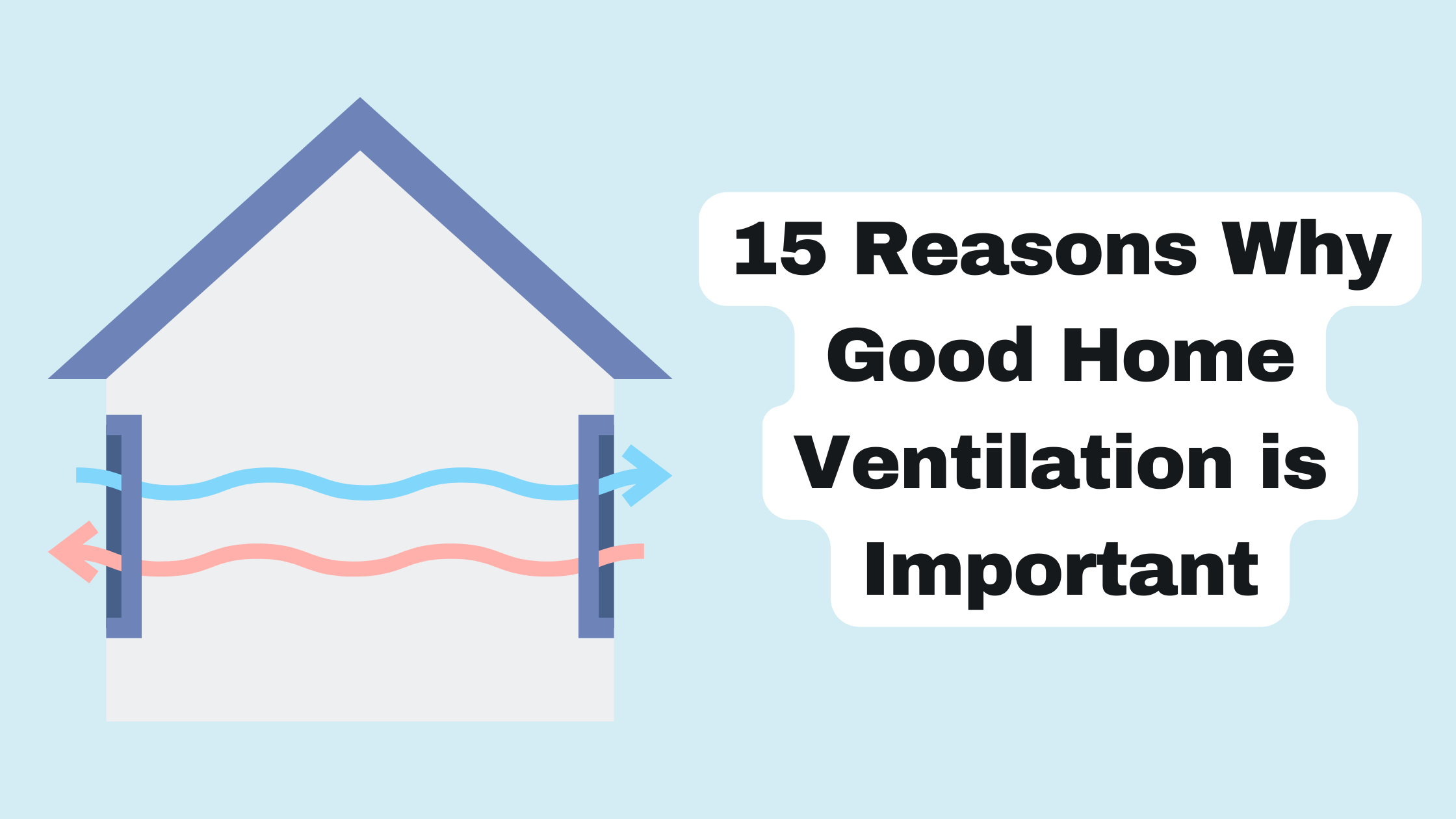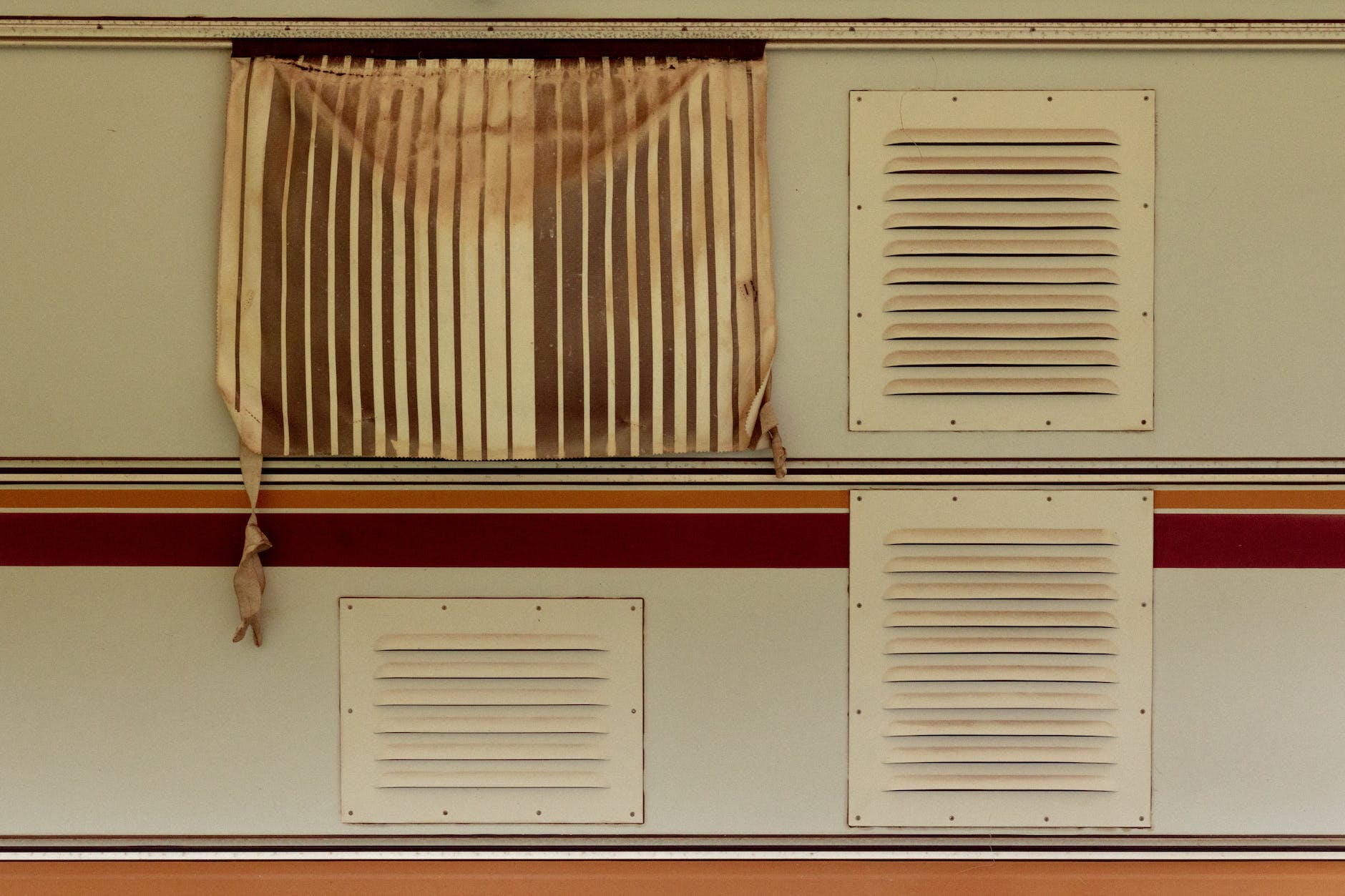
Reasons Why Good Home Ventilation is Important
When it comes to creating a safe, comfortable, and healthy living environment, good home ventilation should not be underestimated. Ventilation goes beyond just regulating temperature; it plays a crucial role in maintaining indoor air quality, managing moisture, and even impacting your overall well-being. In this article, we will delve into 15 compelling reasons why good home ventilation is indispensable.
Decentralised MVHR (Mechanical Ventilation with Heat Recovery) systems are a game-changer when it comes to ensuring good home ventilation. With traditional ventilation systems, a single unit is responsible for ventilating the entire house, which can lead to uneven distribution of air and ineffective removal of stale and polluted air. However, with decentralization, each room in your home can have its own mini-ventilation system.
Why is this important?
Well, imagine having a poorly ventilated bathroom after you’ve taken a hot shower. The steam will quickly condense on cold surfaces and create an environment perfect for mold growth. Additionally, inadequate ventilation can cause unpleasant odors to linger in your home, negatively impacting indoor air quality and making it an uncomfortable living space. Decentralised MVHR solves these problems by providing targeted ventilation where you need it most.
Good home ventilation also has a positive impact on energy efficiency. With efficient air circulation facilitated by properly designed systems like Ecostream units or carefully positioned windows and vents, it becomes easier to maintain a consistent temperature throughout the house. This leads to reduced reliance on heating and cooling systems as natural airflow can help cool down or warm up rooms depending on the season. Ultimately, this promotes energy savings and lowers utility bills while contributing positively to environmental sustainability.
1. Enhanced Indoor Air Quality
- Good ventilation ensures a constant supply of fresh outdoor air, which helps remove indoor pollutants and maintain high indoor air quality.
- It minimizes the concentration of dust, allergens, and contaminants in the air, contributing to better health and comfort.
2. Health and Well-being
- Proper ventilation reduces the risk of respiratory problems, allergies, and other health issues associated with poor indoor air quality.
- It creates an environment that promotes better physical and mental health, making it an essential component of any healthy home.
3. Moisture Management
- Effective ventilation helps control moisture levels by expelling excess humidity, which can otherwise lead to mold and mildew growth.
- Preventing moisture buildup is crucial in safeguarding your home’s structure and preventing potential health concerns.
4. Odor Elimination
- Good ventilation is effective at dissipating cooking odors, pet smells, and other unpleasant scents, creating a more pleasant living space.
- It ensures that your home smells fresh and inviting.
5. Temperature Regulation
- Ventilation facilitates temperature control by allowing the expulsion of excess heat during hot weather and maintaining warmth during colder seasons.
- It contributes to a more comfortable living environment throughout the year.

Ventilation
6. Energy Efficiency
- A well-ventilated home is more energy-efficient because it requires less cooling in hot weather and less heating in cold weather.
- This can lead to significant energy cost savings and a reduced carbon footprint.
7. Condensation Prevention
- Adequate ventilation helps reduce condensation on windows and walls, which can otherwise lead to mold growth and structural damage.
- It safeguards your home against potential maintenance issues and health hazards.
8. Allergen Reduction
- Good ventilation systems help remove indoor allergens such as dust mites, pollen, and pet dander.
- This is especially beneficial for allergy sufferers, as it allows for easier breathing and a healthier indoor environment.
9. Improved Sleep Quality
- A well-ventilated bedroom promotes better sleep quality by maintaining comfortable temperature and air quality.
- It contributes to a more restful and rejuvenating night’s sleep.
10. Increased Home Value
- Homes with proper ventilation systems are more attractive to buyers and may have a higher resale value.
- Investing in ventilation is not only beneficial for your living comfort but also for your property’s marketability.
11. Enhanced Productivity
- In workspaces or home offices, good ventilation can increase productivity and focus by providing fresh air and preventing stuffiness.
- It contributes to a more conducive environment for accomplishing tasks.
12. Carbon Monoxide Mitigation
- Ventilation systems can help disperse harmful gases like carbon monoxide, reducing the risk of poisoning.
- They act as a critical safety measure for homes with fuel-burning appliances.
13. Reduced Radon Levels
- Proper ventilation can lower radon gas levels in your home, which is crucial in decreasing the risk of lung cancer.
- It is an essential measure in regions with high radon concentrations.
14. Sustainable Living
- Eco-friendly ventilation systems, such as heat recovery ventilators, help save energy and reduce your carbon footprint.
- They align with environmentally conscious living and contribute to a more sustainable future.
15. Regulatory Compliance
- Many building codes and regulations require adequate ventilation to ensure occupant safety and well-being.
- Complying with these regulations is not just a legal requirement but also a means to create a safer living environment.
Conclusion
The significance of good home ventilation cannot be overstated. It influences your health, comfort, energy efficiency, and even the value of your home. It is an investment in your well-being and quality of life, and as such, it deserves your attention and consideration. Whether you are building a new home or improving an existing one, ensuring proper ventilation is a key step in creating a safe and comfortable living space.
It helps to maintain a healthy indoor environment by circulating fresh air and expelling stale or polluted air. This is especially important for individuals with respiratory issues or allergies, as proper ventilation can minimize the presence of irritants such as dust mites, pet dander, and mold spores.
Effective home ventilation plays a significant role in controlling moisture levels within the house. Excessive humidity can lead to the growth of mold and mildew, which not only damages your home but also poses serious health risks. By promoting airflow and reducing humidity levels, good ventilation prevents these unwanted guests from thriving.
Proper home ventilation can contribute to energy efficiency. By allowing fresh air to circulate naturally throughout your living space, you may be able to reduce your reliance on air conditioning or heating systems. This can translate into lower utility bills while helping to reduce carbon emissions associated with excessive energy consumption. In summary, investing in good home ventilation is undoubtedly beneficial for both your health and overall comfort.
It ensures clean and breathable air by removing pollutants while preventing the growth of harmful substances like mold or mildew through moisture control. Additionally, adequate airflow promotes energy efficiency by reducing dependency on heating or cooling appliances. So why wait? Start evaluating your home’s current ventilation system today!






